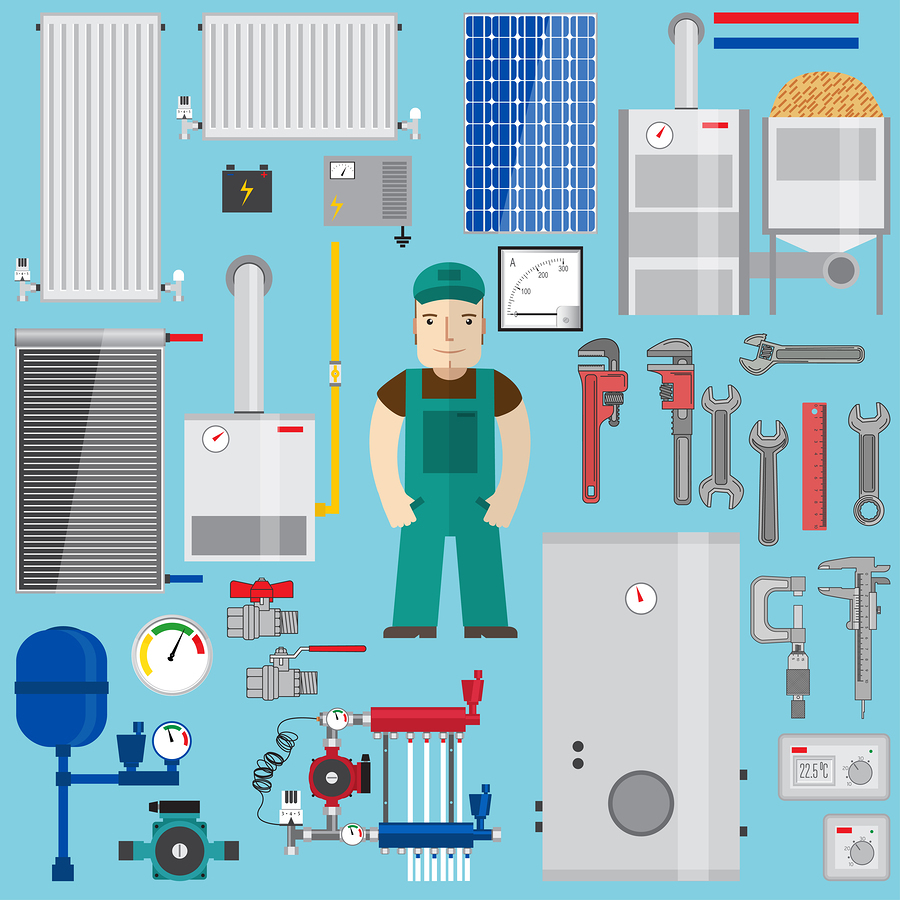David Holmes, founder at Boiler Guide explains how the government’s net zero carbon target might be achieved. The UK government’s 2050 deadline for achieving net zero carbon emissions is creeping ever closer. For that target, which has been enshrined into law, to be achieved, home heating is one of the sectors that will need a major overhaul – beginning in this decade.
Impact of heating on the environment

The heating industry is responsible for around a third of all UK carbon emissions, with the transport and business sectors also accounting for a large proportion of emissions.
In the UK, 8/10 homes have a gas boiler which releases carbon into the atmosphere every time it burns fuel to heat a property. And while gas boilers have increased to efficiency levels of over 90% in recent years, a more environmentally-friendly solution is essential.
To reduce the impact that heating our homes is having on the environment there’s set to be wholesale changes to home heating for homeowners and heating engineers alike.
So, how could we be heating our homes differently by 2030?
New build gas boiler ban
One thing we know for sure is that gas boilers won’t be installed into new build homes from 2025 with heat pumps being the most likely alternative.
While this will help to reduce the carbon emissions of new build homes, there are millions of existing properties that also need to become more efficient.
Renewable heating systems
Switching from gas and oil boilers to renewable heating systems is one route to a ‘greener’ future for home heating. Rather than burning fossil fuels, renewable systems like heat pumps generate energy from sustainable sources, meaning that they don’t emit carbon into the atmosphere as they work to heat the home.
As well as shrinking their carbon footprint, homeowners will also be able to expect lower energy bills and could receive payments through the Renewable Heat Incentive. The downside, however, is the initial cost which is significantly higher than a boiler replacement and could put homeowners off making an investment in the ‘green’ technology.

Smart thermostats to rise in popularity
Heating controls have developed greatly in recent years which means that homeowners can get more control of their heating system than ever before.
There’s seemingly no end to what we can control from our smartphones and heating is no different. Smart thermostats are almost a luxury item but expect them to make their way into more homes over the next 10 years.
With many including features that know when the property is empty and can learn the heating habits of a home, smart thermostats are an innovative way to increase the efficiency of homes.
More hydrogen trials
The case has been made for hydrogen replacing the natural gas currently used by the gas network to heat our homes. A hydrogen trial, run by HyDeploy, has begun in the village of Keele, where the gas being delivered to homes and faculty building is made up of 20% hydrogen.
HyDeploy are already planning another hydrogen trial in the north-east of England by the end of 2020 but if the trials go well, expect to see more.
‘Hydrogen-ready’ boilers
Speaking of hydrogen, Worcester unveiled their ‘hydrogen-ready’ boiler in 2019 which is equipped to run on a supply of 100% hydrogen. Worcester believe that all boilers installed from 2025 should be hydrogen-ready so that homes are prepared to be supplied with the low-carbon alternative to natural gas.
Off-grid homes will need to change too
Homes that aren’t connected to the gas network might not have a gas boiler but in many cases will have an oil boiler – which also releases carbon into the atmosphere.
The Clean Growth Plan states: “Our ambition is to phase out the installation of high carbon fossil fuel heating in new and existing off-gas grid residential buildings (which are mostly in rural areas) during the 2020s.”
New qualifications for engineers
With new builds set to be free from gas boilers and more homeowners wanting to reduce their impact on the environment, heating engineers might want to consider earning qualifications necessary to install renewable heating systems. Not only will it be important for installers to hold the relevant qualifications, homeowners will also need educating about how to use these unfamiliar heating systems.
While it’s clear that carbon emissions from home heating need to be reduced, a clear plan as to how that will happen isn’t currently in place. That being said, this decade is set to see plenty of change for all aspects of the heating industry.
For more information about Boiler Guide, visit www.boilerguide.co.uk

